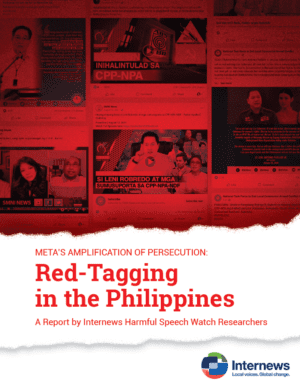Read the Report
In the last decade, the Philippines – leading the “most internet-addicted region on the planet” – has consistently topped the world internet usage index with users spending an average of 10 hours a day of screen time. The country’s dominance on such indexes is no surprise given the critical element, Meta’s now-defunct “Free Facebook” initiative, that first catapulted the number of Filipino users online in 2013.
As a way to grow its user base away from developed countries, Meta subsidized internet access to Facebook on mobile devices in a country where the government’s infrastructure spending was low, cellular data expensive, and many people used smartphones as their only access to the internet. While the initiative failed in other countries, it proved markedly successful in the Philippines which now boasts over 92 million users and is of one of Meta’s largest markets. The company’s importance as a platform for news and political discourse in the country became evident in 2016 when it was dubbed the “Patient Zero for the war on disinformation” by Facebook’s Public Policy Director for Global Elections.
In 2022, which witnessed the resurrection of the Marcos family to political power, Facebook is no longer simply a battleground for disinformation but a tool wielded by state officials to “brand and hound any perceived enemies of the state” through red-tagging, which refers to the labeling and branding of individuals and organization as left-wing, subversives, communists, or terrorists. With the passage of the Duterte administration’s controversial Anti-Terrorism Act of 2020 (RA11479), state security forces are now empowered to arrest and detain suspected individuals without a warrant.
This report aims to answer the question: How does Meta cause or contribute to offline harm as a result of online red-tagging?
